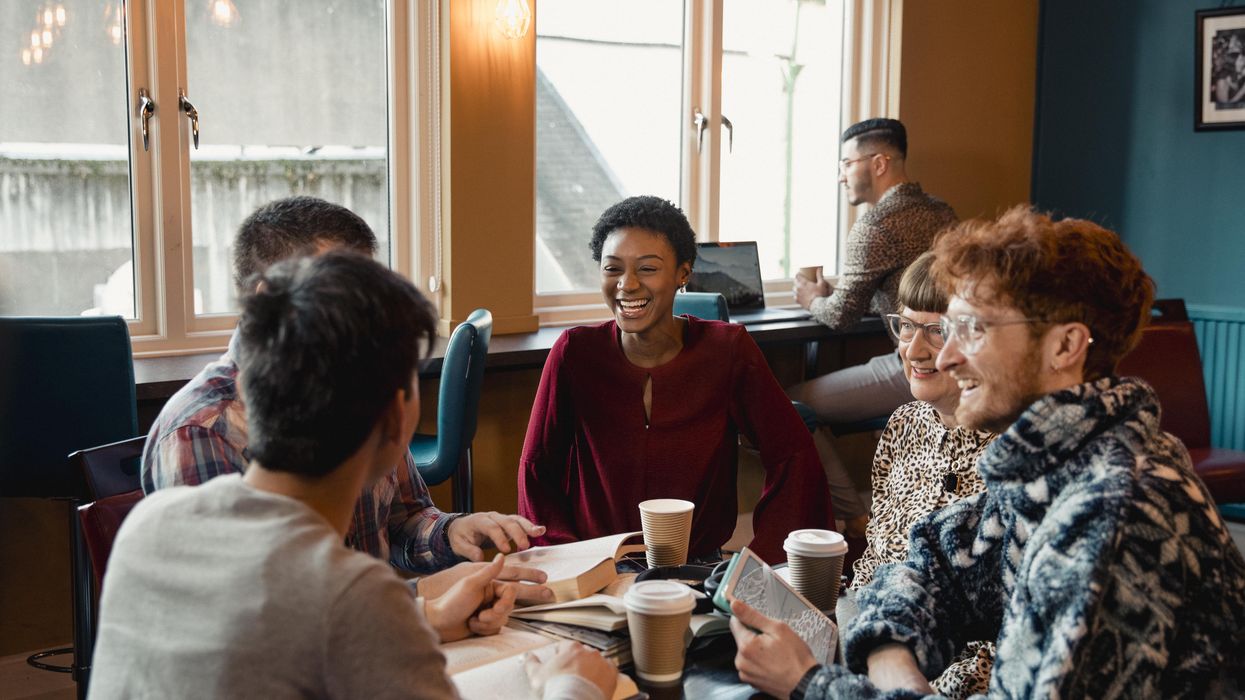Cancel culture, immigration reform, Black Lives Matter, congressional gridlock, the Jan. 6 riot: What do these seemingly disparate national phenomena have in common? Democratic dysfunction. Yet when many Americans think of democracy, they think less of themselves than of politicians, less of community and lifestyle than of government and elections. Our narrow concept needs widening, our democracy needs learning and community. There is no better place to start than at the grassroots level by forming democracy learning communities all across America, in urban and rural areas, suburbs and exurbs.
We come to this conclusion from long careers, domestic and foreign. Paul is a political sociologist who has studied and engaged in grassroots citizen activism in the United States for over 30 years. Mike is a former State Department diplomat who worked for 35 years to support democracy abroad in countries ranging from Russia to Iraq to South Sudan. From these different vantage points, we have learned that democracy is fragile and demands wide, constructive citizen engagement. This engagement can produce valuable public goods such as mutual trust, better health and lasting peace. In South Sudan's long civil war, Mike witnessed first-hand how stalled peace talks between the government and rebels advanced only after youth, women, and community and religious leaders were given a seat at the negotiating table. In Massachusetts, Wisconsin, Florida, Virginia and Washington, D.C., Paul experienced how active citizens tend to be more informed and confident about their civic power. Research shows such citizen qualities can nurture more responsive government.
Citizens are not born, they are made. The best making is sustained, not episodic. Yet for most Americans, the practice of democracy is at best episodic and narrow: voting every few years, then watching in consternation from afar as paid activists, lobbyists, and elected officials run the show. All Americans are affected by democratic dysfunction, so we need sustained, inclusive ways for citizens to connect, learn and collaborate about democracy.
We can start by learning about human behavior and its interaction with larger forces shaping American life. First, abundant research shows humans tend to favor and gravitate toward people like themselves. Second, this tendency fuels a variety of cognitive biases that make it harder for humans to understand and get along with people unlike them. These include going along with our group to get along, seeking and trusting information that confirms our group's views, and seeing members of outside groups as more alike and those of our in-group as more diverse. Third, when these human biases face new conditions — daily absorption in electronic media, media algorithms that feed us what we like and believe, and communities more segregated by class and political affiliation — our biases are magnified in ways that aggravate democratic dysfunction.
How can Americans meet these social and structural challenges and strengthen our democracy? One way is to create democracy learning communities. DLCs enable us to tap into two powerful human traits that have helped us survive and thrive as a species: our capacity to learn, and our inclination toward sociability.
The concept of a learning community is most discussed and practiced in higher education, where structured, residential learning communities have been shown to improve student grades and graduation rates. Yet in our complex, interdependent and rapidly changing world, learning communities can and should be cultivated throughout society. This would help people intelligently, collaboratively tackle problems, and fulfill their needs for belonging and purpose.
Democracy learning communities can bring people together across political, class, race and religious divides to learn about their commonalities and differences as well as the complexities, challenges and possibilities of democracy. Further, when organized municipally or regionally, DLCs can bring people together in-person as well as online, on an on-going rather than episodic basis, to nurture greater trust and collaboration. Clearly, bringing people together across lines of difference is not easy, and can spur conflict rather than collaboration. But effective learning communities uphold rules of engagement and foster long-term relationships through regular, curated activities — like networking socials, issue deliberations, and collaboration workshops — that engender learning and cooperation.
Democracy demands informed, skilled and caring citizens. Good citizens are neither born nor made through the status quo of episodic democracy. Democracy can and should be a lifestyle as much as a governance system. Municipal and regional DLCs can cultivate more good citizens and help Americans overcome political dysfunction. There is no better place to start than in your own town, city or region.



















